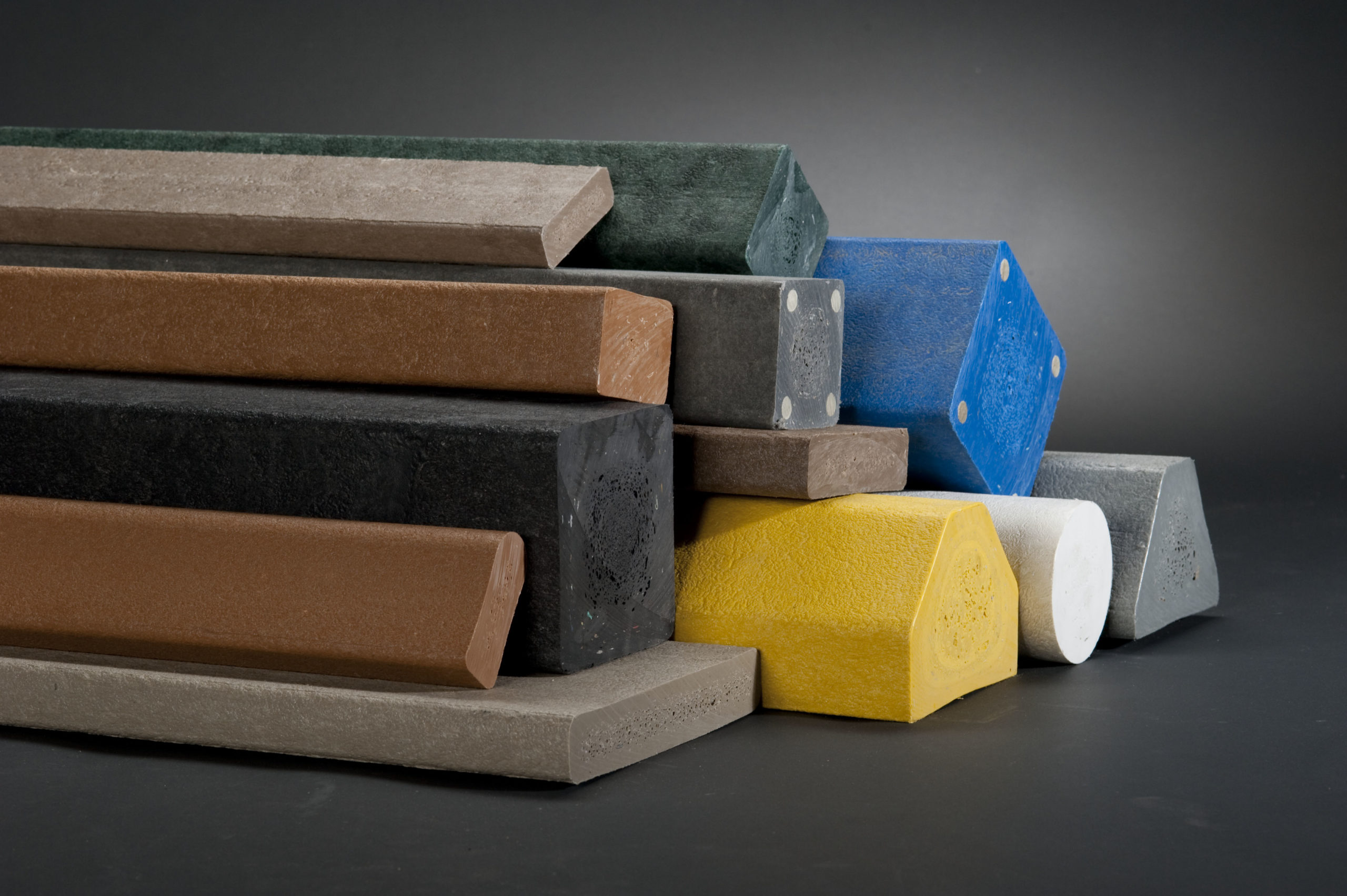Composites: The Future of Sustainable Building Materials
Composites: The Future of Sustainable Building Materials
Blog Article
Discovering the Uses and Advantages of Recycled Composites in Modern Industries
The combinations of recycled products with innovative composite technologies provides an appealing avenue for boosting sustainability, strength, and cost-efficiency across different industries. As industries seek ingenious services to address environmental problems and boost functional performances, the consolidation of recycled compounds arises as a compelling option.
Environmental Benefits of Recycled Composites
The application of recycled compounds in modern-day sectors supplies substantial environmental benefits, contributing to the decrease of waste and the conservation of natural sources. By integrating recycled composites into making processes, sectors can lower their dependence on virgin materials, thereby reducing the quantity of waste produced and the power needed for removal and manufacturing. This change in the direction of making use of recycled composites aids in drawing away materials from landfills, reducing the worry on waste management systems, and decreasing greenhouse gas emissions associated with conventional production techniques.
Moreover, using recycled composites promotes the conservation of natural deposits such as timber, minerals, and water, which are usually depleted through the removal and handling of basic materials (composites). By prolonging the life expectancy of materials via recycling, sectors can assist maintain ecological communities and biodiversity by lowering the need for new sources. Overall, the adoption of recycled composites in contemporary sectors plays a vital function in promoting sustainability and reducing the ecological influence of manufacturing procedures
Boosted Resilience in Item Production
With a concentrate on longevity and effectiveness, including recycled composites into item production processes boosts toughness and sustainability. By making use of recycled composites, manufacturers can develop products that are not just strong but additionally resistant to deterioration, making them suitable for lasting use in different industries. The mix of different materials in recycled compounds can commonly result in improved strength and sturdiness compared to conventional products, giving a cost-effective service for producing long-lasting products.
One of the crucial benefits of utilizing recycled compounds in product manufacturing is the capacity to tailor the product properties to satisfy details longevity demands. By changing the structure and production strategies, makers can personalize the recycled composites to withstand extreme environmental conditions, hefty lots, or constant usage without compromising on efficiency. This adaptability in style and production permits the production of highly resilient items that maintain their honesty in time, decreasing the requirement for frequent replacements and inevitably adding to an extra sustainable manufacturing process.
Cost-Effectiveness and Financial Advantages
Including recycled composites into product production not just enhances durability and sustainability but also provides significant cost-effectiveness and economic benefits. Utilizing recycled compounds can lead to minimized material costs as recycled materials are usually more economical than virgin materials. Additionally, reusing composite products can lower garbage disposal expenses and lower the requirement for land fill area, adding to total cost savings for markets.

Technology and Layout Versatility With Recycled Compounds
Utilizing recycled compounds in modern-day industries uses unparalleled possibilities for technology and layout adaptability. By including recycled products into composite manufacturing processes, companies can press the boundaries of traditional style restraints and check out new opportunities. The flexibility of recycled composites enables the development of intricate forms and structures that may not be attainable with standard products.
Among the vital benefits of recycled compounds is their ability to be built right into different forms, giving developers the freedom to try out special sizes and shapes. composites. This versatility opens a globe of creative possibilities, allowing the development of lightweight yet long lasting products that meet the particular needs of various markets
Furthermore, the use of recycled composites advertises lasting practices and sustains the round economy by reducing waste and decreasing the environmental influence of making procedures. This concentrate on environment-friendly style options lines up with the expanding pattern in the direction of sustainability in modern-day markets, making recycled composites a useful resource for forward-thinking and cutting-edge firms.
Applications Throughout Different Industries
Recycled compounds locate varied and impactful applications throughout a vast array of sectors site link because of their distinct residential or commercial properties and sustainability advantages. In the automobile sector, these materials are increasingly made use of for producing durable and light-weight elements, enhancing fuel effectiveness and reducing carbon exhausts. The aerospace sector advantages from recycled compounds in the manufacturing of aircraft components, where the materials' strength-to-weight proportion is essential for making certain security and efficiency. In building, these compounds are used for developing solid yet environmentally friendly structure materials, adding to lasting facilities development. The renewable resource industry uses recycled composites in wind turbine blades and photovoltaic panels, utilizing their stamina and resistance to extreme ecological conditions. In addition, the marine industry uses these materials for manufacturing boat hulls and parts, providing enhanced toughness and deterioration resistance. The adaptability and sustainability of recycled composites make them important across various sectors, driving technology and environmental stewardship. composites.
Final Thought
To conclude, the use of recycled compounds in modern-day sectors provides considerable environmental advantages, enhanced resilience in product production, cost-effectiveness, and financial advantages. The use of recycled compounds permits for innovation and style flexibility throughout numerous sectors. In general, the adoption of recycled composites offers a practical and sustainable remedy for satisfying the requirements of the sector while also reducing environmental effect.

One of the essential benefits of using recycled compounds in item production is the capacity to customize the product homes to fulfill details longevity requirements. Using recycled compounds can lead to minimized product prices as recycled materials are often much less expensive than virgin materials. The aerospace market benefits from recycled compounds in the production of aircraft components, where the materials' strength-to-weight proportion is important for making sure security and efficiency.
Report this page